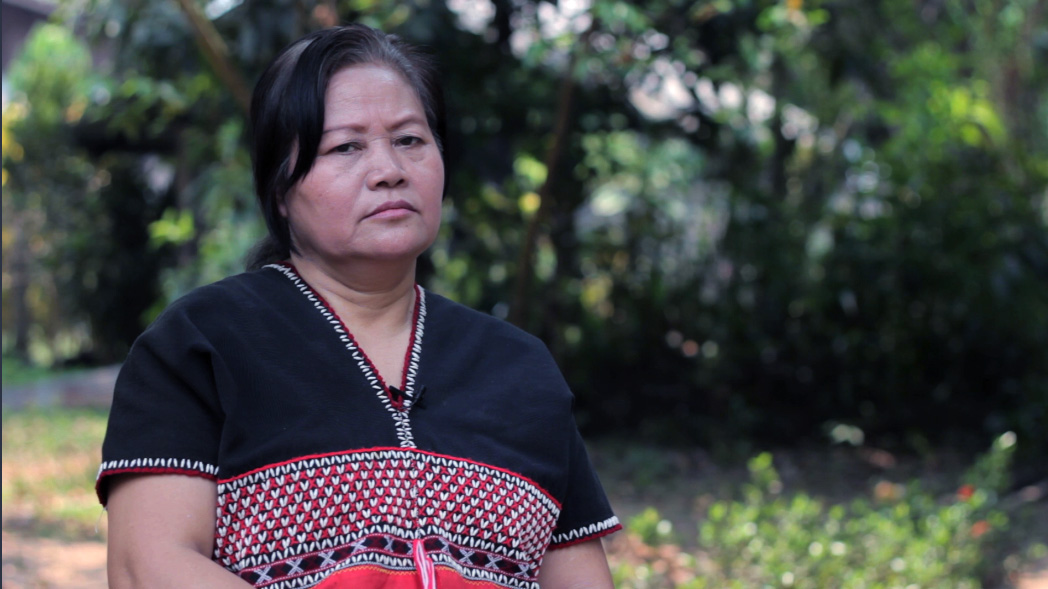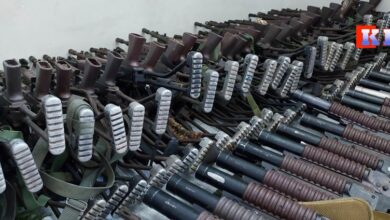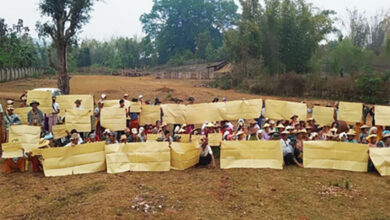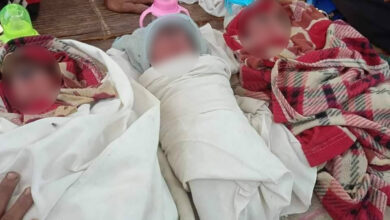Karen National Union’s Deputy Chairwoman Warns International Community to Read the Small Print on Nationwide Ceasefire and not Believe Govt’s ‘Manipulation”

In an exclusive series of interviews with Karen News, Padoh Naw Zipporah Sein, vice chairperson of the Karen National Union talks about a diverse range of critical issues facing ethnic people. In part 1, Ms Sein gives her perspective on the progress of the draft nationwide ceasefire agreement between the Burmese government and the country’s ethnic armed groups.
Ms Sein told Karen News that the draft nationwide ceasefire agreement that was reached between the Burmese Government and the Nationwide Ceasefire Coordination Team was not the signing of the Nationwide Ceasefire Agreement.
Ms Sein said the document signed on March 31 2015 was the approval reached on draft agreement only and was signed by the ethnic armed organizations’ negotiation team, the Nationwide Ceasefire Coordination Team (NCCT) and the [government’s] Union Peace-making Work Committee (UPWC).
Ms Sein said the agreement still needed to be discussed, amended and ratified by the leaders of the ethnic armed groups.
Ms Sein explained to Karen News that the “current document does not contain all the important issues that we wanted included in it. One excluded issue is the role of the military. The draft agreement does not include a Ceasefire Code-of-Conduct, this is a military issue but it was agreed that it would be discussed later.”
Ms Sein said that her political organization, the Karen National Union, had put forward the issue of militarization for inclusion in the NCA.
“The issue about the relocation of [Myanmar Army] troops in our [controlled] areas, comes under the Ceasefire Code-of-Conduct is not included in this draft agreement. This is one issue that the Karen National Union wants and has been putting it forward for inclusion but it was not included.”
Ms. Sein said that the KNU was concerned that a transition period was not included in the draft agreement.
“The transition period is a period of time where political dialogue is progressing – there should be a time after the nationwide ceasefire where the ethnic nationalities will have their self-governed authority as they have now. There should be an agreement on this. Currently it is not included in the [draft] document. These are issues that we wanted to include, but they have been left out of this draft agreement.
Ms. Sein explained to Karen News what the draft agreement reached between the NCCT and the government means.
“The {draft] agreement means that both the NCCT and government reached an agreement on a draft NCA and they [only] signed on the draft. They did not sign on the nationwide ceasefire agreement. The NCCT does not have mandate to sign on a nationwide ceasefire agreement. This draft agreement that was signed is that the [NCCT] have finished one step of their work in the overall process.”
Ms. Sein pointed out that the signing of the NCA would not benefit ethnic people if all the issues are not included in it.
“The signing of the agreement reached on the draft NCA will not bring any benefits if the draft agreement does not contain all the important issues. However, [as it stands] there will be more benefits for the government.”
Ms. Sein said the government had taken advantage of the confusion over the status of the draft and “manipulated the signing on the draft agreement as if it was the [actual] signing of the nationwide ceasefire agreement. Because of the signing of the draft, the international community and many governments have welcomed this, but they have misunderstood. It was not the signing of the final ceasefire agreement.”
Ms. Sein said the KNU are concerned that “as usual the Burma government only cares about a signing and often don’t care about if the implementation of agreements are carried out or not. The government likes getting signatures on agreements and the signing of agreements, but this often causes misunderstanding among the people and with the international community. It is the same with the draft nationwide ceasefire agreement reached between the ethnic groups and the government. People are confused by what these signings actually mean.”
According to Ms. Sein the government planned to get a NCA signed before the 2015 national election.
“The important thing for the Burma government is to get a nationwide ceasefire agreement done before the national election. So, there must have been pressure to get the ceasefire agreement signed as soon as possible in order to move smoothly on the national election.”
Ms. Sein accused the government of putting its own agenda before that of ethnic peoples’ aspirations and that the “government doesn’t care about what issues [concerning the ethnic groups] should be included or to what degree in the agreement. They only care to get the agreement signed in order to get support, get good name as peacemakers, get international support and foreign investments and in addition to get their legitimacy recognized – it is all part of their plans.”
Ms. Sein said that the ethnic groups willingness to sign the NCA depended on how “inclusive the issues are in the Nationwide Ceasefire Agreement. This means that important issues or issues that guarantee ethnic rights must be included in order for the groups to sign the document.”
Ms. Sein said that the “agreed draft document will need to be reviewed by the ethnic leaders to make sure the important issues are included. If important issues are not included, there will be a need for further negotiations and it will not be signed right away.”
Ms Sein pointed out that “although there is an agreement on the draft reached between the NCCT and UPWC, if the ethnic leaders see information in the draft that is not complete, then they [ethnic leaders] are not ready to sign. Their readiness will also depend on the result of the meetings because there are still two steps in process left to do.”
Ms. Sein explained to Karen News the two step process.
“The NCCT has reached an agreement on the draft and they have now finished their part, but now the NCCT representatives have to report back to each of their respective member organizations to review the documents. That is one step – each of the NCCT member organizations has to decide on. The second step will be to hold a summit meeting where the top ethnic leaders will meet to discuss the documents and the result will be if they are ready to sign or not.”
Ms. Sein explained that if the NCA is sign there will be a “full framework laid down by the ethnic groups, the next step after the NCA is political dialogue. For political dialogue to take place the ceasefire must be agreed to and an agreement must be signed. That’s the way it should go. However, as I mentioned earlier, the signing on the draft between the NCCT and UPWC can’t be considered as the actual signing of the final agreement. The draft document still needs to be discussed to see if the information is completed or not. If not, how much further negotiation will it need? This is one issue that needs to be discussed and decided on.”
Ms. Sein said that she was concerned that the government would start more mega-projects once the nationwide ceasefire agreement was signed.
“Community based group have called for the mega economic development projects to be stopped, this issue is also not included in the NCA. Even if the NCA is signed, the benefits will not include stopping those economic activities. Instead, we are concerned that more mega development projects will start because the government is waiting for the NCA to be signed in order to invite more foreign investment into the country.”
Ms. Sein confirmed to Karen News that the rewording of the Constitution was not on the NCA agenda.
“There is no clear provision or procedure written in the NCA in order to amend or reword the 2008 Constitution. It is only stated that the issue will be discussed at the political dialogue level, there are no specific details.”




